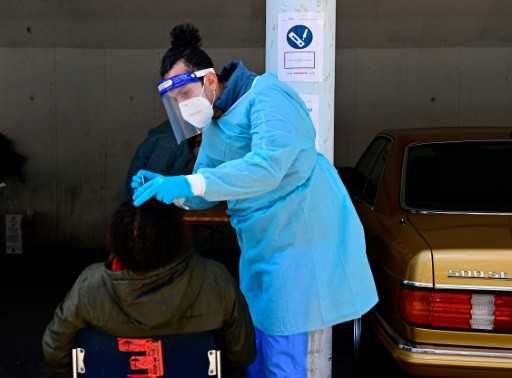Germany pulls virus 'emergency brake' however, not all on board
24 April, 2021

Germans are facing tougher nationwide COVID-19 measures from Saturday, including night curfews and school closures, following the government passed a disputed new law designed to slow infections.
With a lot of its neighbors lifting restrictions despite higher virus rates, Europe's biggest economy is bucking the trend with the brand new national law dubbed the "emergency brake."
Passed amid huge protests in Berlin this week, regulations prescribes uniform national restrictions and is designed to end a tug of war between your authorities and Germany's 16 states.
Tough measures will apply from Saturday in every regions with incidence rates greater than 100 new infections per 100,000 persons over the last seven days, including sweeping shutdowns and overnight curfews.
Schools must revert to virtual teaching in areas where in fact the incidence rate exceeds 165.
Eight German states had an incidence rate above 165 on Friday, with the national average hovering at 164.
Conservative daily Die Welt called the new law "an authoritarian fig leaf made to conceal failures of strategy, vaccination and testing".
The liberal, pro-business FDP party has vowed to take legal action to have it overturned, with party chief Christian Lindner calling it "unconstitutional".
With Munich confirmed on Friday as a host city for the upcoming Euro 2020 football championship -- which starts in June -- the new law ensures that whether fans will be allowed to attend will ultimately depend on the infection rates then.
The mayor of Munich said there was no "guarantee", contradicting a UEFA statement that the southern German city would host "a minimum of 14,500 spectators" at its four games.
Munich on Friday had an incidence rate of 148.2.
The new restrictions also have caused confusion on the question of travel through areas with high incidence rates.
"Anyone who does not need to commit an administrative offense may not cross the affected districts by car, train as well as plane through the curfew," the FDP's Wolfgang Kubicki told the Bild daily.
Virus restrictions in Germany had previously been decided in consultations between Chancellor Angela Merkel and the leaders of the 16 states, with the regions ultimately accountable for implementing them.
However in many cases, regional leaders have didn't set up shutdown measures that they agreed with Merkel, with many choosing broad interpretations of the guidelines.
Germany's Robert Koch Institute health agency reported 27,543 new Covid-19 cases in the past 24 hours on Friday and 265 deaths, with the agency's Lars Schaade warning the numbers were "still too high".
Source: japantoday.com
TAG(s):
